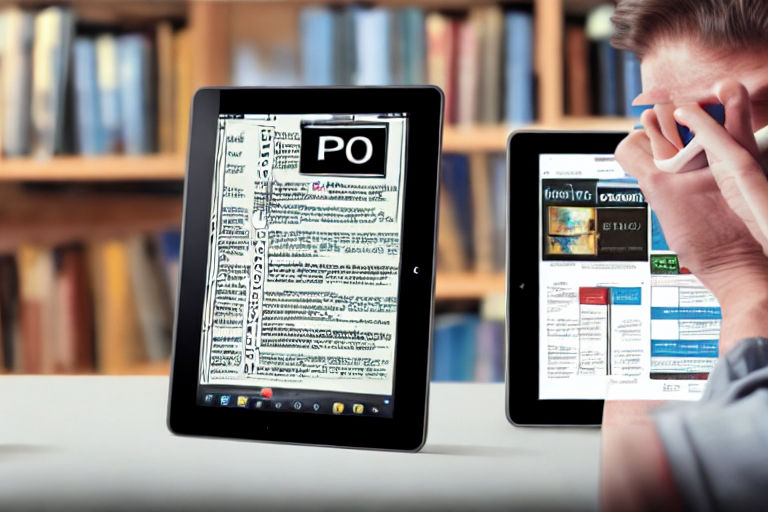Pro and Con: Tablets v Textbooks
With the ever-increasing popularity of tablets or e-readers, the question of whether or not they will replace traditional textbooks has been a popular topic of discussion. While both have their advantages and disadvantages, let's take a closer look at the pros and cons of each.
Pros of Using Tablets
- Cost-effective: Digital textbooks are often less expensive than their traditional counterparts. Plus, students don't have to worry about buying new textbooks every semester because they can simply download the latest editions on their devices.
- Convenience: With a tablet, students can carry all their textbooks around with them without the added weight of physical books. Tablets also offer features like note-taking and highlighters, making studying and organizing easier.
- Flexibility: Students can choose to study wherever and whenever they want with a tablet. They can access content on-the-go, or from the comfort of their own homes.
- Environmentally-friendly: Tablets help reduce the number of trees cut down for paper production, and they also cut down on transportation emissions since textbooks no longer need to be transported.
Cons of Using Tablets
- Digital distractions: Students may find it harder to concentrate with the numerous digital distractions available on tablets. Social media, video games, and messaging apps could all take away from valuable study time.
- Strained eyes: Looking at a screen for hours on end can cause eyestrain and fatigue, which could ultimately lead to headaches or further eye problems in the future.
- Necessity of a charger: Unlike textbooks, tablets need to be constantly charged. If a student forgets to charge their device, it could mean the difference between a good or poor academic performance.
- Technical difficulties: Technology is not infallible, and technical difficulties with tablets can lead to missed classes and missed deadlines. This may be especially difficult for students who are not technologically inclined.
Pros of Using Textbooks
- Less distracting: Without the numerous digital distractions available on tablets, students may be able to focus and retain information more easily when using traditional textbooks.
- Less eye strain: Reading a physical book is easier on the eyes than reading off a screen, which can help reduce the risk of eyestrain or other eye problems.
- No charging required: Students do not have to worry about power outlets or charging stations when using textbooks. They are always readily available and do not require any additional equipment.
- No technical difficulties: Unlike tablets, traditional textbooks are not prone to technical glitches or issues with software or hardware. This means students can be more certain they will have access to the content they need at all times.
Cons of Using Textbooks
- Expensive: Textbooks can be costly, especially when purchased new. They can also be heavy and cumbersome to carry around, which can be a burden for students.
- Less convenient: Carrying multiple textbooks around can be inconvenient, especially when traveling or trying to study on-the-go. Textbooks also lack features like note-taking and highlighting, which can make studying and organizing more difficult.
- Environmental impact: While textbooks can be recycled, they are still made from paper and contribute to deforestation. The costs of transportation and production may also contribute to climate change.
In conclusion, both tablets and textbooks have their advantages and disadvantages. Before making a decision, it is important for students to consider their own studying habits and what kind of learning environment they prefer. Ultimately, the choice between tablets and textbooks comes down to personal preference and what works best for you.



